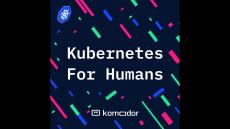Following all the hype and bluster with DeepSeek’s arrival in the AI landscape––and its ability to crash the poster child of AI’s share value overnight (Nvidia), we wanted to conduct a rigorous evaluation at Komodor. We tested DeepSeek’s models head-to-head against industry leaders in solving real-world Kubernetes challenges.
Recently we’ve explored the evolving role of Kubernetes as a full ecosystem, rather than just a platform, diving into the power and complexity of add-ons. These tools, as highlighted previously, are key to augmenting Kubernetes core capabilities, and adding-on (as their name implies) essential capabilities not supported directly by Kubernetes itself.
Managing DNS records in Kubernetes at scale is complex, especially as clusters grow and the number of applications increases. Enter ExternalDNS—a tool designed to automate DNS record synchronization with Kubernetes resources, providing the agility and scalability needed for modern application environments.
Managing TLS certificates in Kubernetes is no small feat, and the complexity only grows when you’re dealing with multiple clusters. Ensuring secure communication, automating certificate renewals, and integrating with external Certificate Authorities (CAs) are just a few of the challenges Kubernetes administrators, DevOps engineers, and security professionals face.
Artificial intelligence (AI) and machine learning operations (MLOps) have become crucial across a wide swath of industries, with the two technologies working in tandem to provide value. AI enables data-driven insights and automation, while MLOps ensures efficient management of AI models throughout their lifecycle. With AI’s growing complexity and scale, organizations need robust infrastructure to manage intensive computational tasks, giving rise to platforms like Kubernetes.
|
By Erez Rabih
Edge computing is a decentralized computing approach that processes data and performs computations near the source of the data—local servers, smart devices, or edge nodes—rather than depending on a centralized data center. This reduces latency, which is often a result of data having to travel long distances and improves bandwidth efficiency. Discover how edge computing and Kubernetes revolutionize data processing and deployment.
The Kubernetes ecosystem is undergoing a significant transformation, and the trends emerging at KubeCon highlight just how dynamic this space has become. Traditional Application Performance Monitoring (APM) providers are rapidly shifting focus to Kubernetes Performance Monitoring (KPM), reflecting the growing need for specialized observability in increasingly complex environments.
As someone who is building a platform that is intended to make Kubernetes operations easier for everyone––I’ve learned a lot about production Kubernetes operations. The main thing I’ve noticed folks getting wrong, is that it isn’t simply a platform, it’s an entire ecosystem.
In today’s fast-paced technology landscape, creating a robust developer platform is essential for streamlining software development processes and ensuring efficient collaboration across teams. In this talk, we will explore how you can build your own developer platform in just 90 minutes using a powerful combination of Backstage, ArgoCD, and Kubernetes (K8s).
|
By Erez Rabih
In today’s cloud-native world, enterprises increasingly manage multiple Kubernetes clusters across public and private clouds, edge, and on-premises environments. As clusters proliferate, efficient management is key to ensuring consistency, security, and reliability across the fleet.
#035 - Beyond Kubernetes: A Veteran of the Container Wars on the Past, Present, and Future of Clo...
|
By Komodor
This episode of "Kubernetes for Humans" features Dan Ciruli, a Senior Director of Product Management at Nutanix, who shares his journey in tech and his perspective on the evolution of cloud-native technologies. Ciruli discusses his early career as an engineer and his transition to product management, noting that the role was not well-defined in the 1990s. He recounts his experiences with startups, Google, and D2IQ (formerly Mesosphere), highlighting the rise of Docker and projects like Mesos.
|
By Komodor
The Hitchhiker’s Guide to Kubernetes Add-Ons: How to Simplify Operations and Scale with Confidence.
|
By Komodor
This podcast features Cory O'Daniel, CEO of Massdriver, an infrastructure automation platform. O'Daniel discusses his extensive background in software engineering and cloud operations, highlighting his expertise in Erlang and Elixir programming languages and their applications within Kubernetes. He explains Massdriver's role in simplifying infrastructure management for both developers and operations engineers by visually representing infrastructure-as-code.
|
By Komodor
Mirko, co-founder and former CEO of Instana, led the Application Performance Management company for microservices to its successful acquisition by IBM in late 2020. In May 2023, he co-founded Dash0, an OpenTelemetry-native observability solution, furthering his contributions to the observability field. An active angel investor, Mirko supports over 60 tech startups, showcasing his dedication to fostering innovation and emerging technologies.
|
By Komodor
Solomon Hykes began his career as a System Administrator at Fairgame in 1999 and later worked as a Junior Software Engineer at the San Diego Supercomputer Center in 2002. In 2003, he became self-employed and worked as a Tech Mentor & Instructor until 2004. Solomon then joined CEIS as a Trusted Infrastructure Engineer from 2004 to 2006. Solomon Hykes then joined SmartJog as a Solutions Engineer from 2006 to 2007.
|
By Komodor
Daniel Bryant is the Head of Product Marketing at Syntasso. His technical expertise focuses on ‘DevOps’ tooling, cloud/container platforms, and microservice implementations. Daniel is a long-time coder, platform engineer, and Java Champion, contributing to several open-source projects. He also writes for InfoQ, O’Reilly, and The New Stack and regularly presents at international conferences such as KubeCon, QCon, and JavaOne. In his copious free time, he enjoys running, reading, and traveling.
|
By Komodor
Amit Bar-Oz, Sr. Solution Architect at Komodor showcasing the all-encompassing capabilities of Komodor's Kubernetes Platform including first-class-citizenship support for cluster add-ons, CRDs, and ecosystem integrations.
|
By Komodor
This is a re-recording of the LIVE workshop from DevOpsDays Tel Aviv In today's fast-paced technology landscape, creating a robust developer platform is essential for streamlining software development processes and ensuring efficient collaboration across teams. In this talk, we will explore how you can build your own developer platform in just 90 minutes using a powerful combination of Backstage, ArgoCD, and Kubernetes (K8s).
|
By Komodor
For years, the potential of AI in operations has been a hot topic, often promising more than it delivers. As Kubernetes environments grow increasingly complex, the limitations of traditional monitoring and troubleshooting tools become glaringly apparent. But with the rise of GenAI, a new question emerges: Is AI finally ready to transform the way we manage and optimize Kubernetes Operations?
|
By Komodor
The Handbook for Kubernetes Errors is an essential guide to understanding and resolving all of the most common Kubernetes issues, including: and many more.
- February 2025 (3)
- January 2025 (7)
- December 2024 (2)
- November 2024 (7)
- October 2024 (2)
- September 2024 (3)
- August 2024 (5)
- July 2024 (7)
- June 2024 (4)
- May 2024 (8)
- April 2024 (9)
- March 2024 (6)
- February 2024 (8)
- January 2024 (7)
- December 2023 (7)
- November 2023 (1)
- August 2023 (6)
- July 2023 (7)
- June 2023 (10)
- May 2023 (3)
- April 2023 (3)
- March 2023 (3)
- February 2023 (3)
- January 2023 (1)
- November 2022 (3)
- October 2022 (3)
- September 2022 (9)
- August 2022 (1)
- June 2022 (4)
- May 2022 (3)
- April 2022 (2)
- March 2022 (2)
- February 2022 (4)
- January 2022 (3)
- December 2021 (2)
- November 2021 (4)
- October 2021 (6)
- September 2021 (4)
- August 2021 (6)
- July 2021 (6)
- June 2021 (2)
- April 2021 (1)
- March 2021 (1)
Komodor tracks changes across your entire K8s stack analyzes their ripple effect and provides you with the context you need to troubleshoot efficiently and independently.
Today’s microservices systems are complex, distributed and they are constantly changing. Keeping track of so many moving parts in so many places often seems nearly impossible! Komodor is the missing piece in your DevOps toolchain – offering one unified platform from which you can gain a deep understanding of all of your system events, changes and their effect.
Turning troubleshooting chaos into clarity:
- Empower on-call teams: Make the knowledge and expertise that has traditionally been held by only a few, clear and visible to Dev and SRE teams.
- Understand your Kubernetes: Gain the K8s visibility you are lacking. See your deployments on a timeline with the relevant information: what changed, what code was pushed and by whom.
- Track your system end-to-end: View data from your Git, config, infra, alerting and other tools, in one centralized and easy-to-understand display.
- Uncovering the context: Troubleshoot your microservices based on the most relevant context, connections and dependencies.
Keep building. We’ve got your back.






















